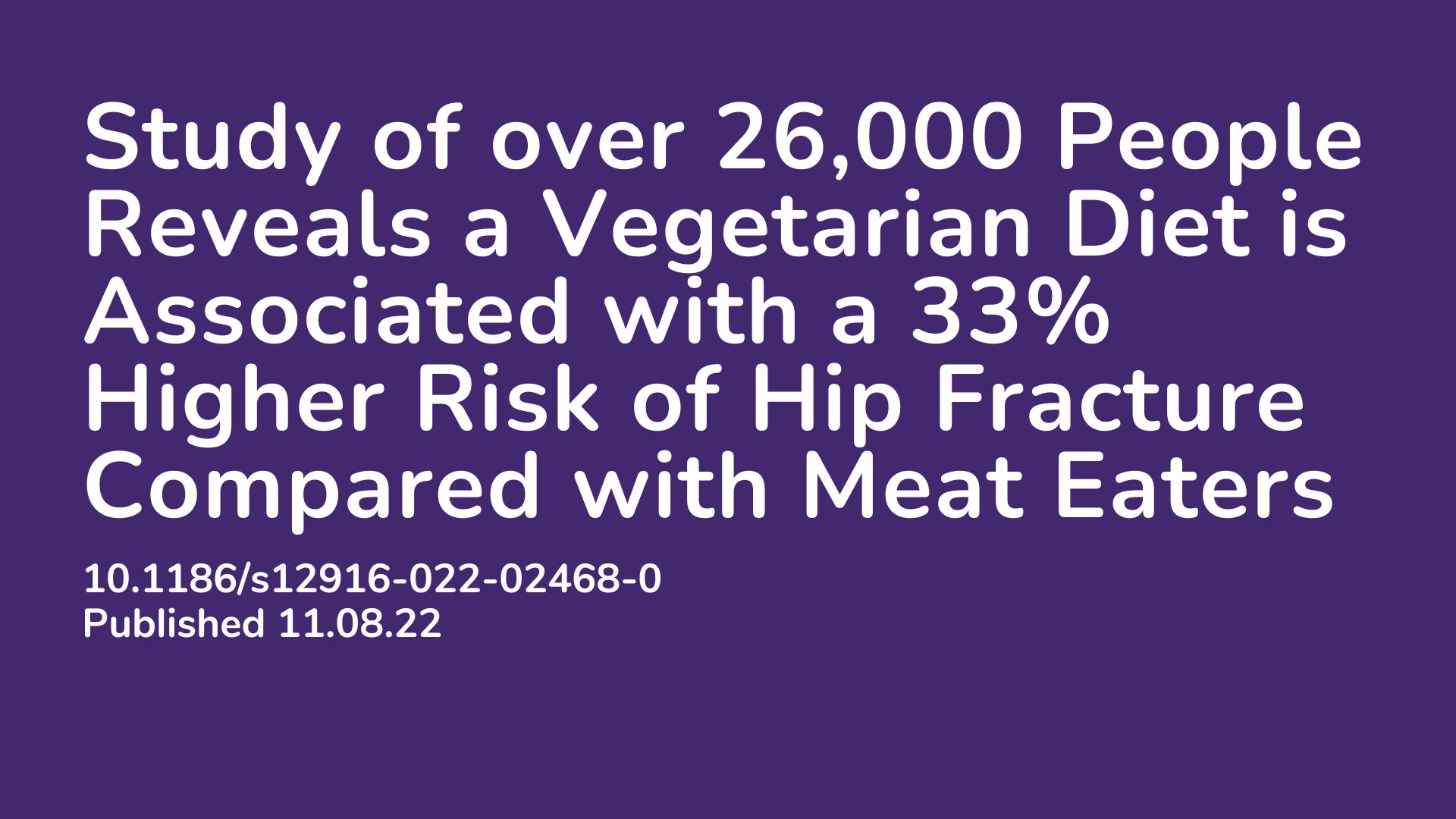Summary: Due to growing and ageing populations, hip fractures are becoming extremely prevalent globally. Suggestions have been made in research that there may be a link between meat-free diets and poor bone health, however this association in relation to hip fractures remains unclear. As the number of people engaging in meat-free diets is increasing due to reduced risk of some chronic diseases and a lower environmental footprint, understanding the full scope of its health impacts is increasingly important to manage public health. This paper is a cohort study that looked at the risk of hip fractures in people who eat meat occasionally, vegetarians and pescatarians, compared to people who eat meat regularly (more than 5 servings a week) in the UK. The aim was to determine if there is a potential association between each diet group and poor bone health leading to increased risk of hip fractures. The researchers also looked at the role of body mass index in the included cohort of women. Women aged 35-69 were included and assessed with a food frequency questionnaire of 217 items. Amongst 26,318 people, 822 hip fractures were noted. The results showed that after adjusting for potential variants, vegetarians, but not occasional meat eaters or pescatarians, had a larger risk of hip fractures than those who ate meat regularly. There was no clear conclusion on the role of weight or body mass index.
Abstract:
Background: The risk of hip fracture in women on plant-based diets is unclear. We aimed to investigate the risk of hip fracture in occasional meat-eaters, pescatarians, and vegetarians compared to regular meat-eaters in the UK Women’s Cohort Study and to determine if potential associations between each diet group and hip fracture risk are modified by body mass index (BMI). Methods: UK women, ages 35–69 years, were classified as regular meat-eaters (≥ 5 servings/week), occasional meat-eaters (< 5 servings/week), pescatarian (ate fish but not meat), or vegetarian (ate neither meat nor fish) based on a validated 217-item food frequency questionnaire completed in 1995–1998. Incident hip fractures were identified via linkage to Hospital Episode Statistics up to March 2019. Cox regression models were used to estimate the associations between each diet group and hip fracture risk over a median follow-up time of 22.3 years. Results: Amongst 26,318 women, 822 hip fracture cases were observed (556,331 person-years). After adjustment for confounders, vegetarians (HR (95% CI) 1.33 (1.03, 1.71)) but not occasional meat-eaters (1.00 (0.85, 1.18)) or pescatarians (0.97 (0.75, 1.26)) had a greater risk of hip fracture than regular meat-eaters. There was no clear evidence of effect modification by BMI in any diet group (p-interaction = 0.3). Conclusions: Vegetarian women were at a higher risk of hip fracture compared to regular meat-eaters. Further research is needed to confirm this in men and non-European populations and to identify factors responsible for the observed risk difference. Further research exploring the role of BMI and nutrients abundant in animal-sourced foods is recommended.
Article Publication Date: 11/08/2022
DOI: 10.1186/s12916-022-02468-0



